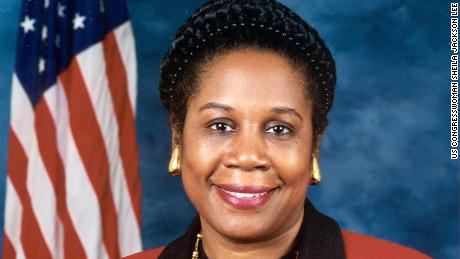All three of them have repeatedly rejected and denounced publicly, unequivocally and fiercely the Republican-driven “Big Lie” that the 2020 presidential election was stolen from former President Donald Trump. Together, Cheney, Romney and Bush are modern-day profiles in courage — embodying former President John F. Kennedy’s dictum that “sometimes party loyalty demands too much.”
Now some might think it surprising for a member of an opposing party to go against the convention of noninterference when one’s adversary is in the process of inflicting harm upon itself. But I have chosen to ignore this convention because I am a firm believer in the promise of a more perfect union. And I believe in America and its future.
Our children listen to and absorb what we say and do. We cannot let them see the brutalization of voices that are telling the truth about January 6 and the attack on the citadel of democracy — the US Capitol — without defending those voices. I believe these Republican leaders are patriots, and I join them in my affection for the written values of this nation.
Bush, Romney, Cheney have indeed put America first.
Cheney has drawn fire for being unrelenting in her defense of constitutional government and for not backing down from her assertion that the domestic insurrection at the Capitol — which sought to disrupt Congress from performing its constitutionally mandated duty to tally the votes cast by electors — was the intentional result of Trump’s handiwork.
In her vote to impeach Trump, she said, “None of this would have happened without the President. The President could have immediately and forcefully intervened to stop the violence. He did not. There has never been a greater betrayal by a President of the United States of his office and his oath to the Constitution.”
Romney, who represents a state that Trump carried by more than 20 percentage points, is the only Republican senator who voted twice to convict and remove Trump from office. And Bush was one of the first Republicans to congratulate President-elect Joe Biden and Vice President-elect Kamala Harris on their election victory — and has stated that the GOP is not going to win any election if it stands for “White Anglo-Saxon Protestantism.”
More Republican leaders are needed to join this chorus of the courageous, to put country over party and to do their part to preserve an American government of, by and for the people. There is historical precedent for them to do so. In our nation’s history, men and women of principle and courage have stood forward at moments of maximum peril in defense of the country’s enduring values.
Men like Rep L. Brooks Hays of Arkansas, who alienated powerful Gov. Orval Faubus during the 1957 integration crisis when he refused to support Faubus’ effort to keep the Little Rock public schools racially segregated. Or Sen. Barry Goldwater of Arizona, House Minority Leader John Jacobs Rhodes of Arizona and Senate Minority Leader Hugh Scott of Pennsylvania, who went to the White House to tell then-President Richard Nixon in 1974 that he had few supporters left in Congress — and if he didn’t resign, he would be impeached by the House of Representatives and convicted by the Senate.
Or women like Sen. Margaret Chase Smith of Maine, the first Republican senator to denounce the demagogue Sen. Joe McCarthy of Wisconsin during the height of the Red Scare. In her famous “Declaration of Conscience” speech to the Senate, she said: “It is high time we stopped thinking politically as Republicans and Democrats about elections and started thinking patriotically as Americans about national security based on individual freedom.”
In perpetuating Trump’s Big Lie, Republican leaders are cravenly choosing narrow partisan interests over the national interest. They are rejecting the wisdom of the founding father of conservatism, the Irish statesman Sir Edmund Burke, who said, the nation “is a partnership in all science; a partnership in all art; a partnership in every virtue, and in all perfection.'”
Burke understood, as did other conservative leaders and scholars, that an elected official’s duty was not simply to be an “instructed delegate,” parroting and following their constituents’ temporary and inchoate passions, but also to be an “enlightened trustee,” bringing experience and judgment to inform the public discourse and understanding.
What is needed today is a semblance of the will and courage of former President Abraham Lincoln, the greatest Republican of all. In his famous 1860 Cooper Union address, Lincoln exhorted and inspired adherents to hold true to their beliefs in equality and that slavery was a moral evil: “All they ask, we could readily grant, if we thought slavery right. All we ask, they could as readily grant, if they thought it wrong. Their thinking it right, and our thinking it wrong, is the precise fact upon which depends the whole controversy.”
Lincoln emphasized that slavery opponents should not grope “for some middle ground between right and wrong.” Instead, he said let us not search in vain for “a policy of ‘don’t care’ on a question about which all true men do care … Let us have faith that right makes might, and in that faith, let us, to the end, dare to do our duty[.]”
America’s strength lies in the ability of everyone — Democrats, Republicans and independents — to speak truth loudly and proudly in the face of adversity, and, yes, to speak truth to power when necessary.







